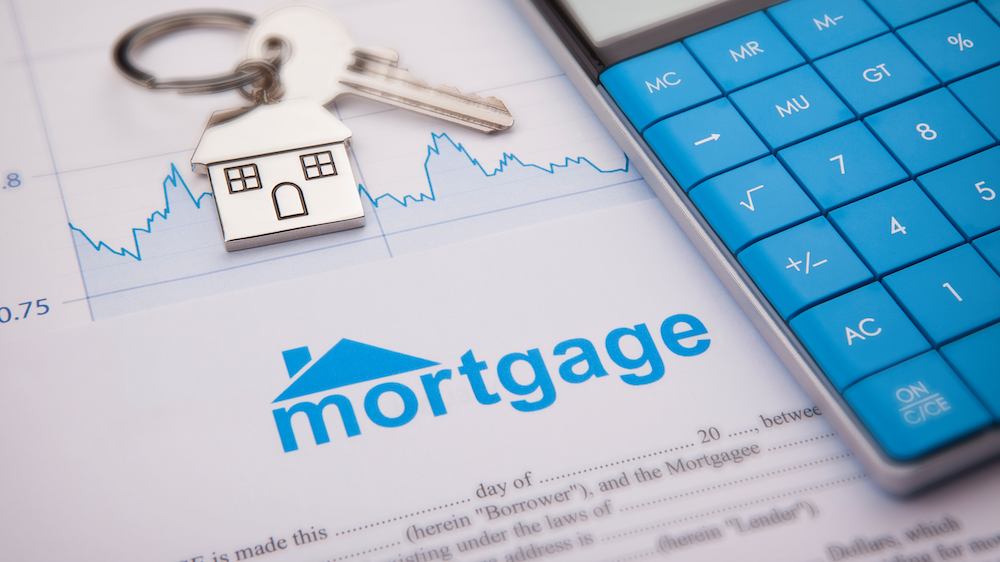
15-Year Fixed Mortgage Rates: Understanding Benefits & Caveats
(insert personalized rate tool here)
Long-term mortgages allow you to save money in the short term, thanks to their low monthly payment. However, what if you want to pay off your loan quickly and save money in the long run?
This is where a 15-year fixed mortgage comes in. This type of loan can allow you to enjoy lower interest rates as well as build home equity faster.
In this guide, we’ll discuss 15-year fixed-rate mortgages in depth. We’ll explain how fixed mortgages work, how mortgage rates are set, and the advantages of a short-term loan. To help paint a better picture of the loan you might need, we also provide tools that can give you a personalized estimate as well as data on the most current 15-year mortgage rates.

Understanding Fixed Mortgages
Fixed-rate mortgages are home loans that feature a static interest rate and annual percentage rate (APR). Once you qualify for the loan at a certain interest rate, you’ll be paying the same amount of monthly payments for the entire life of the loan.
Unlike an adjustable-rate mortgage (ARM), a fixed-rate mortgage has simple rules and is fully amortizing. This means that once you make all the payments on your fixed-rate mortgage, your loan will be fully paid off. Usually, your early payments will go to paying down your interest first, while your payments in the latter stages of the loan will be used to pay your principal.
Because of its stable interest and APR, fixed mortgages are the most popular form of mortgage for American homebuyers. Lenders most commonly offer 30-year fixed-rate mortgage loans, although they may also offer 20-year and 10-year terms. 15-year fixed-rate mortgages are rising in popularity as well.
While a 30-year mortgage features affordable monthly payments, 15-year fixed mortgage rates are lower compared to their longer-term counterparts. You’ll also be able to save more in the long term with a 15-year fixed-rate mortgage because you have less interest to pay. However, you’ll have to pay higher monthly payments if you opt for a shorter loan term.
How Lenders Determine Mortgage Interest Rates
When you submit your mortgage application, the lender determines your interest rate depending on how much risk they take providing your loans. In this section, we’ll break down the main factors that influence your risk level and rates.
Your Credit Score
Your FICO credit score is a measure of how likely you are to pay off your debts. Generally, lenders view people with high credit scores as being more likely to pay their loans. If your credit scores are 740 or higher, you’ll be able to qualify for the best rates.
However, you can still get decent rates if your credit score is above 620. If your credit score is any lower, your loan options will likely be very limited.
The Mortgage’s Loan-To-Value Ratio
The loan-to-value ratio represents the loan amount compared to the property’s value. For example, if you pay a $40,000 down payment on a $200,000 home, you’ll need a $160,000 mortgage. Because you’re borrowing 80% of the property’s purchase price, your loan-to-value ratio is 80%.
Generally, lenders consider any loan-to-value ratio above 80% as risky and may require you to buy extra private mortgage insurance to protect them in case you default on your loans.
Overall Economic State
When the economy is growing – signified by higher inflation and lower unemployment – the mortgage rate tends to rise. Conversely, in periods of economic downturn and high unemployment, mortgage rates are more likely to fall.
Federal Reserve Influence
In response to movements in the economy, the United States Federal Reserve can raise and cut short-term interest rates. While this doesn’t impact the home loans industry directly, mortgage rates tend to follow the Fed rates in the same direction.
Individual Lender Considerations
Different lenders may have different policies. Some lenders may impose closing costs and prepayment penalties on some of their loans, causing your total mortgage expense to rise. They may also charge more or raise the rates on riskier loans like cash-out refinances and ARMs.

Benefits Of A 15-Year Mortgage
While the short term of these loans may be daunting to some, there are three primary benefits that a 15-year fixed mortgage can offer.
Lower Interest Rates
The main difference between a 15-year mortgage and a 30-year one is that the lender’s money is tied up for half the time. Because of this reduced risk, lenders are more willing to provide lower rates if you’re a 15-year fixed loan borrower. To paint you a picture, the average 15-year fixed loan interest rate is 2.246%, compared to the 2.785% rate that 30-year loans offer.
Thanks to this low interest rate, you’ll be able to save money in the long run. If you buy a $500,000 home with a $100,000 down payment, you’ll have to spend $190,540 in total interest payments on a 30-year loan. However, borrowing the same amount using a 15-year mortgage will cost you a total interest payment of $71,527.
Pay Your Mortgage Faster
Paying off your mortgage is a dream for a lot of homeowners. By fully paying off your home loan, you’ll have one less expense to budget for, and you can celebrate the fact that you fully own your house. With a 15-year mortgage, you’ll be able to enjoy this peace of mind in half the time it takes than if you had a 30-year fixed-rate mortgage.
Home Equity Builds Sooner
As you make mortgage payments, you’ll start truly owning parts of your house – this is called home equity. Once you’ve built up enough equity in your home, you can use it as collateral for low-interest loans using home equity lines of credit. This means that the sooner you have equity in your house, the sooner you’ll be able to leverage your property’s value for other uses.
Caveats Of A 15-Year Fixed Mortgage
However, a 15-year mortgage does have some drawbacks that you still need to keep in mind.
Higher Monthly Payment
Because you’re borrowing the same amount of money but paying it off in half the time, a 15-year loan’s monthly installments will be more expensive compared to payments on its 30-year counterpart. With a $500,000 loan, you can expect to pay $3,190 on a 15-year mortgage with 2.246% interest. This is compared to the lower $2,211 payments that you'll need to make on a 30-year mortgage with a 2.785% interest rate.
Because of the considerably higher monthly payment, you’ll likely have more money tied up in your mortgage’s expenses. This may pose a problem if you have other expenses to pay, and you may risk stretching your finances too thin by taking out 15-year mortgages.
Limited Loan Amount
Because the payments are stretched out over a longer period, you may have more room to apply for larger loans in a 30-year mortgage. However, you may not be afforded this luxury in 15-year loans. Since you’ll be making larger payments, you may need to limit your balance and settle for lower-priced homes.
Sacrifice Other Investment Opportunities
Because more of your money is tied up in mortgage payments, you may find it harder to spend your money on long-term investments like the stock market or retirement accounts. Having a longer term means you have more disposable income to invest in other income-generating opportunities.

Is A 15-Year Fixed-Rate Mortgage Right For Me?
Mortgages are long-term commitments. By taking out a 15-year loan, you’ll be paying a high cost for the entire life of the loan. And because you’ll need to be committed to paying these loan payments every month, a 15-year fixed mortgage may not be right if you have a limited amount to spend per month. You should only take a 15-year loan if you have enough money to pay the monthly installments reliably and comfortably.
A 15-year loan is also the best choice if you want to pay off your loan and fully own your home as soon as possible. You’ll be able to save more in the long run by reducing the amount of charged interest on your loan principal.
However, you should also keep in mind that the shorter term of a 15-year fixed loan may not allow you to borrow a large amount of money. If you’re looking for short-term savings and lower monthly payment amounts, you can opt for a 30-year fixed mortgage instead.
Refinancing Your 15-Year Mortgage
One of the only ways you can take advantage of a drop in mortgage rates with fixed loans is by refinancing. When you refinance a loan, you’re taking out another loan with a lower interest rate to pay off your current loan. By refinancing into a lower-interest loan, you may be able to save money in the long term due to the reduced interest charges.
If you have a 30-year fixed mortgage, you can also refinance into a 15-year loan if you have the funds to make payments reliably. This can help you save money as well as pay your loan off sooner.
However, you should keep in mind that a mortgage refinance requires you to qualify for another loan, which means going through a lender’s risk assessment process again. You may also be subject to expenses like closing costs and origination fees. Before you decide to refinance a loan, it pays to compare your current loan’s rate and check the current refinance rates to calculate how much you’ll be able to save if you refinance.

Insider Access To The Most Current 15-Year Mortgage Rates
To help you compare today’s 15-year mortgage rates, we’ve provided the table below. The interest rate and APR data are taken from a comprehensive survey of America’s top mortgage lenders and will be updated daily. These rates are subject to change without notice.
(insert rate table here)
Once you know the current mortgage rate, you can use the tool provided above to receive personalized mortgage estimates. After you receive the estimates, use the calculator below to determine how much you’ll need to pay monthly.
(insert mortgage calculator here)
How To Get The Most Affordable Fixed Mortgage Rates
Because a 15-year fixed mortgage rate won’t change for the entire life of the loan, getting the best rates when qualifying for it is essential. Here are three tips that you can follow to maximize your chances of getting the best rates.
Compare Interest And Annual Percentage Rate From Various Lenders
All lenders are required to provide a standardized document containing your loan’s interest and APR, alongside other relevant fees upon request. The standardized information will make it easier for you to compare and calculate which option provides the best value for your money.
Consider Different Mortgage Types
While fixed mortgages are the most popular type of home loan, it isn’t the only type offered in the market. If you’re looking for conventional loans and expect to stay in the house for a short period of time, you can consider an adjustable-rate mortgage.
If you qualify for their eligibility requirements, you can also consider government-backed loans such as an FHA loan or VA loan. These loans are typically more affordable than conventional loans, although they also have their own extra costs such as mortgage insurance that you need to pay for the entire mortgage’s life.
Buy Discount Points From The Lender
To lower your rates, you can ask your lender about discount points. These points are upfront costs that you can pay to reduce your interest rate.
Each point is usually worth 1% of the mortgage’s value and will reduce your rate by 0.25%. So, for example, if you have a $200,000 mortgage that features a 2.5% interest rate, paying one point ($2,000) will reduce your rate to 2.25%.
Pay A Larger Down Payment
While lenders generally waive the mortgage insurance requirement if you provide at least a 20% down payment, you can reap more benefits from a larger down payment. Not only will it reduce the loan-to-value ratio and make a good case for the lender to give you a lower interest rate, but you’ll also reduce the loan’s principal. This translates to smaller monthly payment amounts once you get your mortgage approved.
Work With A Mortgage Broker
Shopping for mortgages by yourself can be confusing, especially if you’re buying a home for the first time. By enlisting the expertise of a mortgage broker, you can take advantage of their knowledge and find the best-valued 15-year mortgages. They may also be able to reduce or even entirely waive extra lender fees charged on your mortgage because they bring business to lenders.

Closing Thought
While a 15-year mortgage may seem daunting because of its high monthly payment amounts, it can be the best option if you’re looking to pay off your home loan as soon as possible. By paying your loan’s balance faster, you’ll also be able to leverage your home equity sooner. However, you should take care not to let the high costs put you in a financial bind.